Did you know that you can get rid of Diabetes Type 2 by Diabetes surgery? The number of bariatric surgeons who have the knowledge and skill to perform the surgery is still limited nowadays. Ekol Hospitals’ all general surgeons can perform this operation safely and successfully with satisfactory results.
Diabetes surgery, single-Anastomosis Duodeno-Ileal bypass with Sleeve Gastrectomy (SADI-S) is an innovative surgical procedure designed primarily to treat morbid obesity and its associated conditions, such as type 2 diabetes.
This surgery combines two techniques: a sleeve gastrectomy and a bypass. In the first part, a significant portion of the stomach is removed, limiting food intake and reducing hunger hormone levels.
The second component involves bypassing a large segment of the small intestine, which alters gut hormones and improves glucose metabolism.
This combination not only facilitates significant weight loss but also has a profound impact on the body's ability to regulate blood glucose levels. SADI-S has shown promising results in improving or resolving diabetes, offering a potential lifeline for patients struggling with obesity-related diabetes.
The procedure, however, requires careful patient selection and lifelong medical follow-up to ensure nutritional adequacy and monitor metabolic health.
SADI-S (Single-Anastomosis Duodeno-Ileal bypass with Sleeve Gastrectomy) differs from traditional bariatric surgeries in several key ways:
Each type of bariatric surgery has its own set of benefits and risks, and the choice depends on the individual patient's health profile, weight loss goals, and specific medical conditions. SADI-S represents an evolution in bariatric surgery, offering a unique approach particularly beneficial for patients with significant obesity-related diabetes.
Candidates for Single-Anastomosis Duodeno-Ileal bypass with Sleeve Gastrectomy (SADI-S) are typically selected based on a set of criteria that focus on their health status, weight, and previous attempts at weight loss. Here are the key factors considered in determining candidacy:
Each case is evaluated individually, and the decision to proceed with SADI-S involves a thorough assessment by a multidisciplinary team including bariatric surgeons, dietitians, psychologists, and other healthcare professionals. The suitability for SADI-S is based on a comprehensive evaluation of the patient's health, weight history, and psychological readiness.
The Single-Anastomosis Duodeno-Ileal bypass with Sleeve Gastrectomy (SADI-S) offers several potential benefits, particularly for individuals struggling with severe obesity and related health conditions. These benefits include:
It's important to note that while SADI-S offers these potential benefits, it also carries risks and requires a lifelong commitment to dietary changes and medical follow-up. The suitability and potential benefits of SADI-S should be evaluated on an individual basis in consultation with a healthcare professional.
Yes, changing your diet is essential after undergoing Single-Anastomosis Duodeno-Ileal bypass with Sleeve Gastrectomy (SADI-S). This surgical procedure significantly alters your digestive system, impacting how you tolerate food and absorb nutrients. Adhering to the recommended dietary guidelines is crucial for ensuring proper nutrition, promoting healing, and achieving long-term weight loss and health goals. Here are key dietary changes and considerations post-SADI-S:
Remember, dietary recommendations can vary based on individual needs and the specifics of your surgery. It's important to work closely with a dietitian or a healthcare provider specializing in bariatric surgery for personalized guidance and to ensure your diet meets all your nutritional needs.
The Single-Anastomosis Duodeno-Ileal Bypass with Sleeve Gastrectomy (SADI-S) is technically reversible, but it's important to understand that reversibility does not mean it's a simple or commonly recommended option. Here are some key points regarding the reversibility of SADI-S:
In summary, while SADI-S can technically be reversed, such a procedure is complex, risky, and not commonly performed. The decision to undergo SADI-S should be made with the understanding that it is intended as a lifelong change. Any concerns or potential complications should be discussed with a healthcare provider, and alternative solutions should be considered before contemplating reversal.
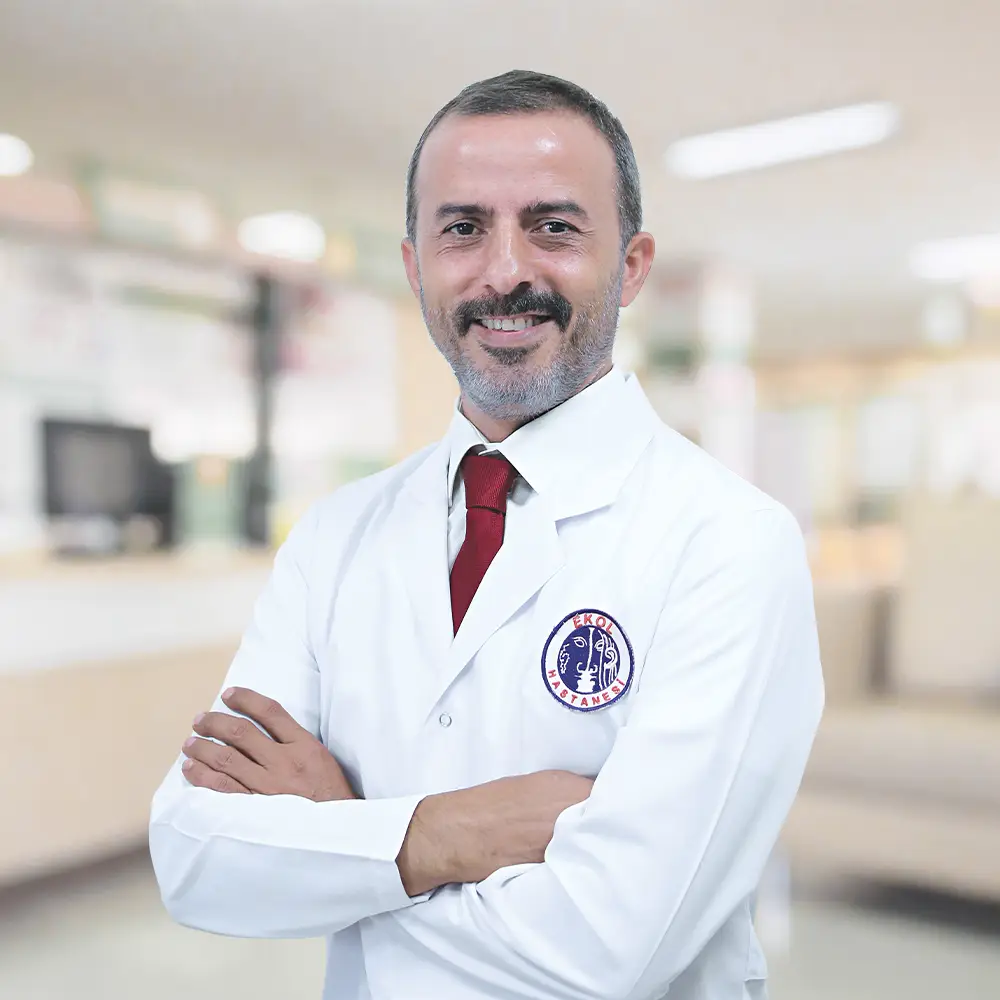 He completed his medical education at Dokuz Eylul University Faculty of Medicine between 1995 and 2001. He specialized in General Surgery at Ankara Training and Research Hospital between 2001 and 2006. He worked as a General Surgery Specialist at Ankara Training and Research Hospital between 2006 and 2008 and later at Ordu State Hospital between 2008 and 2013. In 2016, he received the title of Associate Professor in the Department of General Surgery, Faculty of Medicine, Izmir University. In 2015, he received the Turkish Surgical Association Proficiency Exam (Board) Certificate of Achievement. He is a member of Turkish Surgical Association, Turkish Colon and Rectum Surgery Association, National Endoscopic Laparoscopic Surgery Association, Bariatric and Metabolic Surgery Association, and Hepatobiliary Surgery Association. Between 2014 and 2016, he taught many undergraduate and graduate courses at Izmir University Faculty of Medicine. He has conducted many national and international studies and these studies have received many citations. Assoc. Prof. Dr. Ömer Yoldaş speaks English fluently. He has two children.
Knowledge Domain: Obesity Surgery and Metabolic Surgery, Laparoscopic Reflux Surgery, Laparoscopic Gallbladder Surgeries, Gastric Balloon Application, Gastric filler Application, Laparoscopic Gastric and Intestinal Cancer Surgeries, Haemorrhoid Surgeries, Perianal Fistula Surgeries, Laparoscopic Abdominal and Groin Hernia Surgeries, Breast Cancer Surgeries, Thyroid Cancer and Goitre Surgeries.
He completed his medical education at Dokuz Eylul University Faculty of Medicine between 1995 and 2001. He specialized in General Surgery at Ankara Training and Research Hospital between 2001 and 2006. He worked as a General Surgery Specialist at Ankara Training and Research Hospital between 2006 and 2008 and later at Ordu State Hospital between 2008 and 2013. In 2016, he received the title of Associate Professor in the Department of General Surgery, Faculty of Medicine, Izmir University. In 2015, he received the Turkish Surgical Association Proficiency Exam (Board) Certificate of Achievement. He is a member of Turkish Surgical Association, Turkish Colon and Rectum Surgery Association, National Endoscopic Laparoscopic Surgery Association, Bariatric and Metabolic Surgery Association, and Hepatobiliary Surgery Association. Between 2014 and 2016, he taught many undergraduate and graduate courses at Izmir University Faculty of Medicine. He has conducted many national and international studies and these studies have received many citations. Assoc. Prof. Dr. Ömer Yoldaş speaks English fluently. He has two children.
Knowledge Domain: Obesity Surgery and Metabolic Surgery, Laparoscopic Reflux Surgery, Laparoscopic Gallbladder Surgeries, Gastric Balloon Application, Gastric filler Application, Laparoscopic Gastric and Intestinal Cancer Surgeries, Haemorrhoid Surgeries, Perianal Fistula Surgeries, Laparoscopic Abdominal and Groin Hernia Surgeries, Breast Cancer Surgeries, Thyroid Cancer and Goitre Surgeries.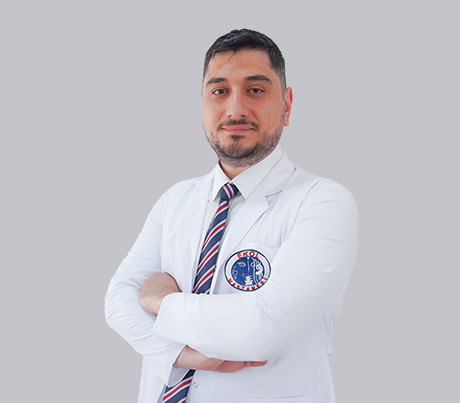 Date of birth
10.11.1987
Education and Expertise
Karadeniz Technical University Faculty of Medicine
Kocatepe University
Ankara University Faculty of Medicine
Konya Health Sciences University
Professional Interests:
Obesity (fatness) surgery and metabolic surgery
Laparoscopic reflux surgery
Laparoscopic gallbladder surgeries
Gastric balloon application
ERCP, EMR, ESD (Advanced Endoscopic procedures)
Laparoscopic pancreatic cancer surgery
Laparoscopic gastric and intestinal cancer surgeries
Hemorrhoid surgeries
Perianal fistula surgeries
Laparoscopic abdominal and inguinal hernia surgeries
Oncoplastic Breast cancer surgeries
Natural cancer surgery (NOSE)
Thyroid cancer and goiter surgeries.
Memberships to Scientific Organizations
Turkish Surgery Association
Turkish Obesity Surgery Association
Surgical Oncology Association
National Society of Endoscopic Laparoscopic Surgery
He is a member of the Bariatric and Metabolic Surgery Association.
Courses and Certificates:
Turkish surgical association proficiency exam (Board) certificate of achievement in 2018
He has more than 100 papers presented in national and international congresses and more than 50 articles published in international journals.
Foreign language
English
Date of birth
10.11.1987
Education and Expertise
Karadeniz Technical University Faculty of Medicine
Kocatepe University
Ankara University Faculty of Medicine
Konya Health Sciences University
Professional Interests:
Obesity (fatness) surgery and metabolic surgery
Laparoscopic reflux surgery
Laparoscopic gallbladder surgeries
Gastric balloon application
ERCP, EMR, ESD (Advanced Endoscopic procedures)
Laparoscopic pancreatic cancer surgery
Laparoscopic gastric and intestinal cancer surgeries
Hemorrhoid surgeries
Perianal fistula surgeries
Laparoscopic abdominal and inguinal hernia surgeries
Oncoplastic Breast cancer surgeries
Natural cancer surgery (NOSE)
Thyroid cancer and goiter surgeries.
Memberships to Scientific Organizations
Turkish Surgery Association
Turkish Obesity Surgery Association
Surgical Oncology Association
National Society of Endoscopic Laparoscopic Surgery
He is a member of the Bariatric and Metabolic Surgery Association.
Courses and Certificates:
Turkish surgical association proficiency exam (Board) certificate of achievement in 2018
He has more than 100 papers presented in national and international congresses and more than 50 articles published in international journals.
Foreign language
English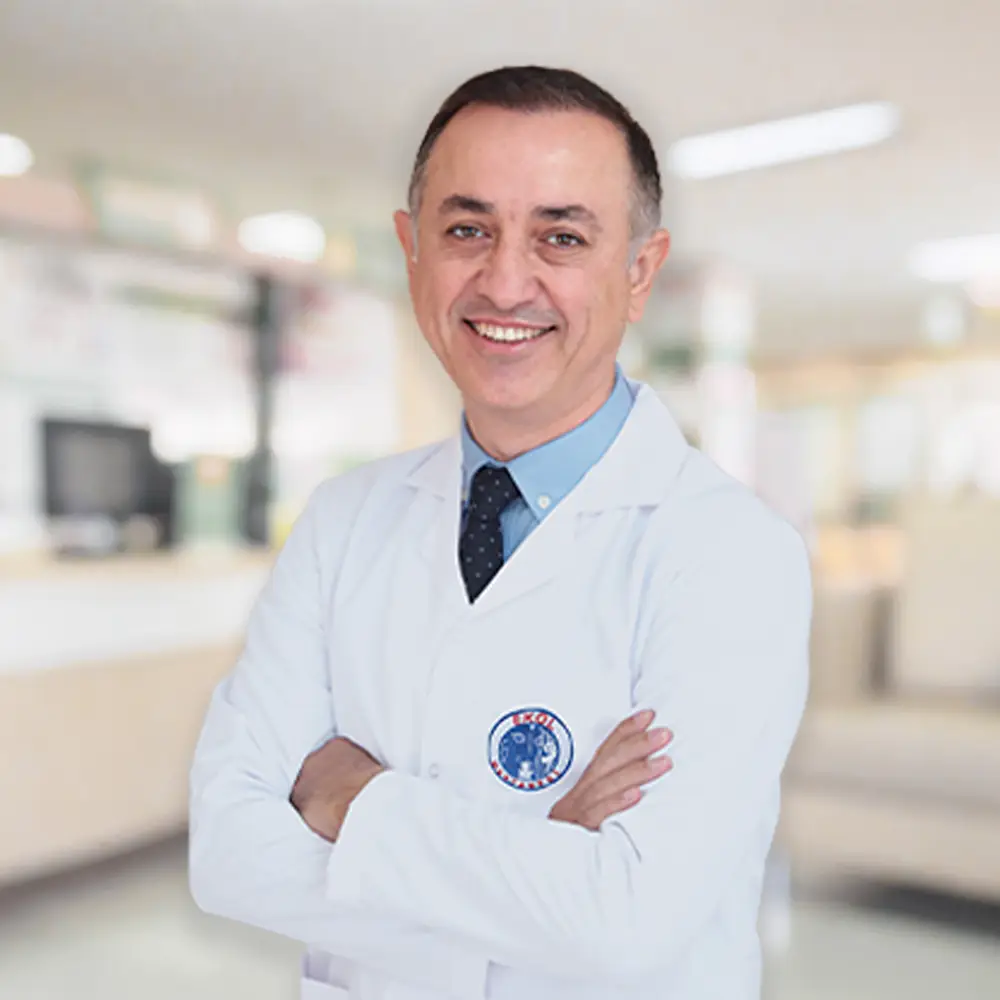 He completed his medical education at Osmangazi University Faculty of Medicine between 1990 and 1996, and his residency in General Surgery at Izmir Training and Research Hospital between 2004 and 2008. In 2008, he received the Turkish Surgical Association's Qualification Exam (Board) certificate of success. He is a member of Turkish Surgical Association, Turkish Colon and Rectum Surgery Association, National Endoscopic Laparoscopic Surgery Association, Bariatric and Metabolic Surgery Association. He worked as a lecturer at Istanbul Rumeli University between 2017 and 2020. He currently performs Laparoscopic Oncosurgery and Obesity Surgeries. He has many national and international studies and these studies have received many citations. Having a good command of English, Opr. Dr. Özgür Kavak is married and has two children.
Areas of interest: Laparoscopic Sleeve Gastrectomy, Laparoscopic Full Gastric Bypass, Laparoscopic Mini Bypass, Laparoscopic Type 2 Diabetes Surgery, Gastric Balloon Application with Endoscopic Method. In Non-Surgical Obesity Treatments: Stomach filler (Endoscopic), Laparoscopic Oncology Surgery (Colorectal, Stomach, Pancreas, Adrenal), Reflux - Gastric Hernia Surgery (Laparoscopic), Minimally Invasive Surgery, Laparoscopic Hernia Surgery, Endocrine Surgery (Thyroid - Breast Surgery), Haemorrhoid Surgery with Laser, Haemorrhoidopexy (LHP), Perianal Fistula Surgery with FILAC (Fistula Laser Closure) Method.
He completed his medical education at Osmangazi University Faculty of Medicine between 1990 and 1996, and his residency in General Surgery at Izmir Training and Research Hospital between 2004 and 2008. In 2008, he received the Turkish Surgical Association's Qualification Exam (Board) certificate of success. He is a member of Turkish Surgical Association, Turkish Colon and Rectum Surgery Association, National Endoscopic Laparoscopic Surgery Association, Bariatric and Metabolic Surgery Association. He worked as a lecturer at Istanbul Rumeli University between 2017 and 2020. He currently performs Laparoscopic Oncosurgery and Obesity Surgeries. He has many national and international studies and these studies have received many citations. Having a good command of English, Opr. Dr. Özgür Kavak is married and has two children.
Areas of interest: Laparoscopic Sleeve Gastrectomy, Laparoscopic Full Gastric Bypass, Laparoscopic Mini Bypass, Laparoscopic Type 2 Diabetes Surgery, Gastric Balloon Application with Endoscopic Method. In Non-Surgical Obesity Treatments: Stomach filler (Endoscopic), Laparoscopic Oncology Surgery (Colorectal, Stomach, Pancreas, Adrenal), Reflux - Gastric Hernia Surgery (Laparoscopic), Minimally Invasive Surgery, Laparoscopic Hernia Surgery, Endocrine Surgery (Thyroid - Breast Surgery), Haemorrhoid Surgery with Laser, Haemorrhoidopexy (LHP), Perianal Fistula Surgery with FILAC (Fistula Laser Closure) Method.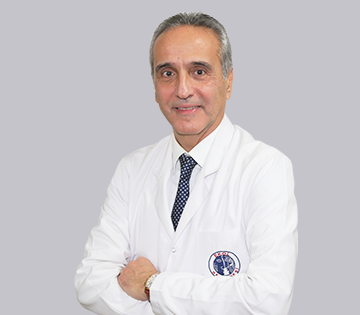 He graduated from Dokuz Eylül University, Faculty of Medicine. Between 1987 and 1991, he completed his specialization in general surgery at Buca SSK Hospital in Izmir. Between 1991 and 2016, he worked at Karşıyaka State Hospital, then until 2019 he worked as the General Surgery Specialist at Çiğli Training and Research Hospital. He is an active member of Turkish Surgical Association, Turkish Society of Colon and Rectal Surgery. He has experienced around 30,000 successful operations in the field of general surgery. Areas of interest: Laparoscopic gallbladder operations, gastrointestinal surgery, haemorrhoids and fissure surgeries, abdominal and inguinal hernia operations, breast cancer operations, thyroid cancer and goiter operations. Op. Dr. Attila El is married and has one child. He speaks fluent English.
He graduated from Dokuz Eylül University, Faculty of Medicine. Between 1987 and 1991, he completed his specialization in general surgery at Buca SSK Hospital in Izmir. Between 1991 and 2016, he worked at Karşıyaka State Hospital, then until 2019 he worked as the General Surgery Specialist at Çiğli Training and Research Hospital. He is an active member of Turkish Surgical Association, Turkish Society of Colon and Rectal Surgery. He has experienced around 30,000 successful operations in the field of general surgery. Areas of interest: Laparoscopic gallbladder operations, gastrointestinal surgery, haemorrhoids and fissure surgeries, abdominal and inguinal hernia operations, breast cancer operations, thyroid cancer and goiter operations. Op. Dr. Attila El is married and has one child. He speaks fluent English.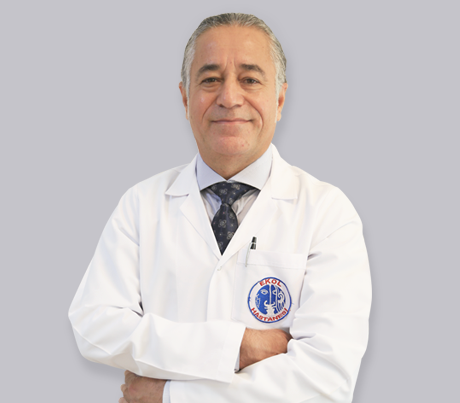 He completed his medical education at Istanbul University Cerrahpaşa Faculty of Medicine between 1986-1992. He completed his general surgery residency at İzmir Tepecik Training and Research Hospital between 1995-2000. In 2011, he received his education in the field of ERCP and Endoscopy at Afyon Kocatepe University. He worked as a specialist at Tepecik Training and Research Hospital, Karşıyaka State Hospital, Bakırçay University / Çiğli Training and Research Hospital between 2000-2021. He is a member of the Turkish Society of Surgery, Society of Endoscopic Laparoscopic Surgery, the bariatric and metabolic surgery society, and the Turkish Obesity Foundation. His special interest is Obesity Surgery.
The father of 2 children, Opr. Dr. Abdulkadir Korkmaz has a good command of English.
Areas of interest: Laparoscopic (closed) obesity (obesity) surgeries (sleeve – medicine stomach, gastric bypass) Gastric balloon application with endoscopic method in non-surgical obesity treatment Laparoscopic (closed) inguinal hernia surgeries Laparoscopic (closed) appendicitis surgeries Laparoscopic (closed) gallbladder surgeries Laparoscopic (closed) reflux - gastric hernia surgeries Goiter and Breast (breast cancer) surgeries Hemorrhoids treatment with laser Anescal surgery with laser
He completed his medical education at Istanbul University Cerrahpaşa Faculty of Medicine between 1986-1992. He completed his general surgery residency at İzmir Tepecik Training and Research Hospital between 1995-2000. In 2011, he received his education in the field of ERCP and Endoscopy at Afyon Kocatepe University. He worked as a specialist at Tepecik Training and Research Hospital, Karşıyaka State Hospital, Bakırçay University / Çiğli Training and Research Hospital between 2000-2021. He is a member of the Turkish Society of Surgery, Society of Endoscopic Laparoscopic Surgery, the bariatric and metabolic surgery society, and the Turkish Obesity Foundation. His special interest is Obesity Surgery.
The father of 2 children, Opr. Dr. Abdulkadir Korkmaz has a good command of English.
Areas of interest: Laparoscopic (closed) obesity (obesity) surgeries (sleeve – medicine stomach, gastric bypass) Gastric balloon application with endoscopic method in non-surgical obesity treatment Laparoscopic (closed) inguinal hernia surgeries Laparoscopic (closed) appendicitis surgeries Laparoscopic (closed) gallbladder surgeries Laparoscopic (closed) reflux - gastric hernia surgeries Goiter and Breast (breast cancer) surgeries Hemorrhoids treatment with laser Anescal surgery with laser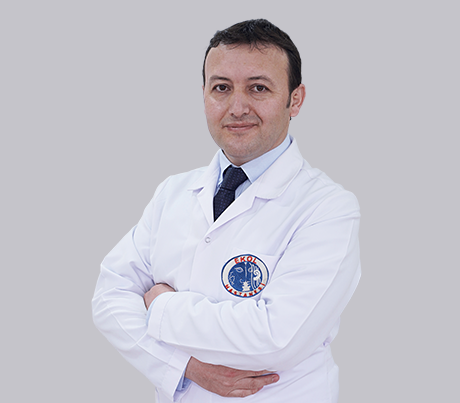 He completed his medical education at Dokuz Eylul University Faculty of Medicine between 1995-2001. He completed his general surgery residency at Eskişehir Osmangazi University Faculty of Medicine between 2002-2007. He is a member of Turkish Surgery Association, Turkish Colon and Rectum Surgery Association, National Endoscopic Laparoscopic Surgery Association, Bariatric and Metabolic Surgery Association, Hepatobiliary Surgery Association and Endocrine Surgery Association. He has many national and international studies and these studies have been cited many times.
Fluent in English, Opr. Dr. Rıza Özdemir is married and has one child.
Areas of interest:
• Obesity (fatness) surgery and metabolic surgery
• Laparoscopic reflux surgery
• Laparoscopic gallbladder surgeries
• Gastric balloon application
• Stomach injection application
• Laparoscopic gastric and intestinal cancer surgeries
• Haemorrhoid surgeries
• Perianal fistula surgeries
• Laparoscopic abdominal and inguinal hernia surgeries
• Breast cancer surgeries
He completed his medical education at Dokuz Eylul University Faculty of Medicine between 1995-2001. He completed his general surgery residency at Eskişehir Osmangazi University Faculty of Medicine between 2002-2007. He is a member of Turkish Surgery Association, Turkish Colon and Rectum Surgery Association, National Endoscopic Laparoscopic Surgery Association, Bariatric and Metabolic Surgery Association, Hepatobiliary Surgery Association and Endocrine Surgery Association. He has many national and international studies and these studies have been cited many times.
Fluent in English, Opr. Dr. Rıza Özdemir is married and has one child.
Areas of interest:
• Obesity (fatness) surgery and metabolic surgery
• Laparoscopic reflux surgery
• Laparoscopic gallbladder surgeries
• Gastric balloon application
• Stomach injection application
• Laparoscopic gastric and intestinal cancer surgeries
• Haemorrhoid surgeries
• Perianal fistula surgeries
• Laparoscopic abdominal and inguinal hernia surgeries
• Breast cancer surgeries